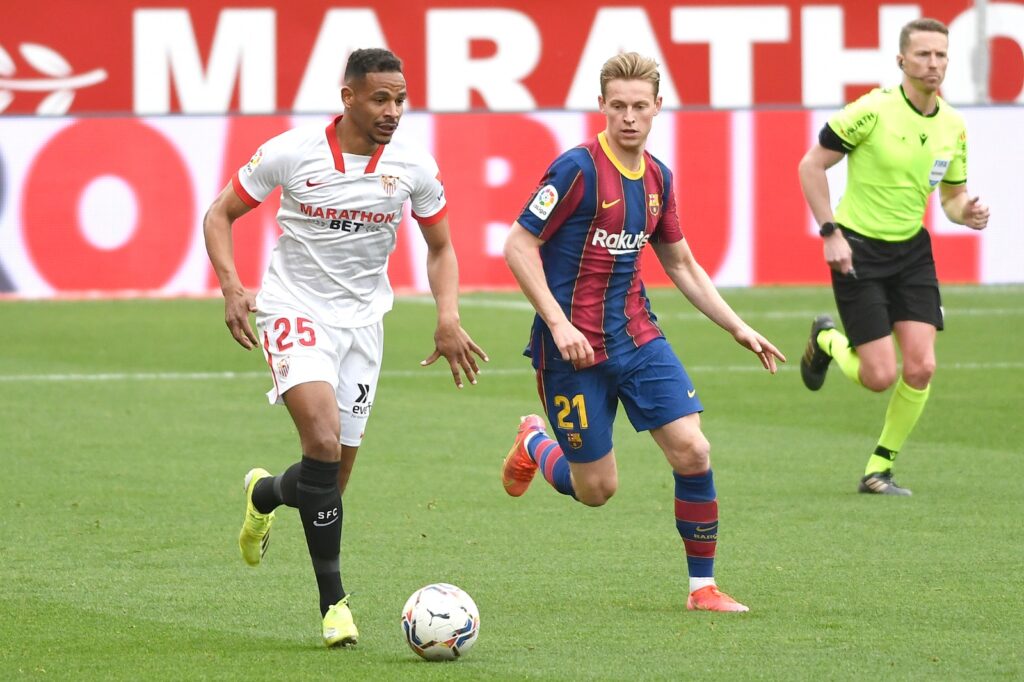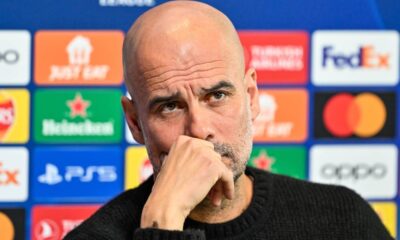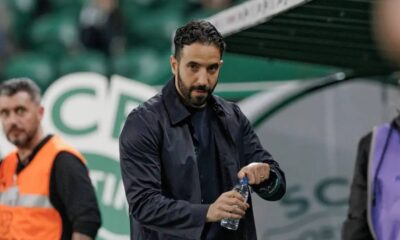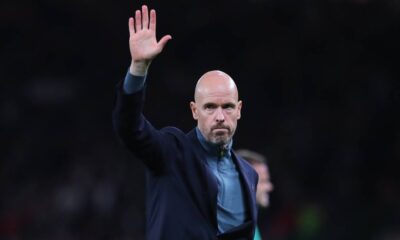Football
Can Frenkie de Jong succeed in the Premier League? The key man for Manchester United’s new era
You’ll search in vain for a midfielder who can keep the ball on his kicks better. A trait that defines Frenkie de Jong’s game. Speculation is growing stronger by the day that he’s heading to Manchester United in the summer transfer window. But the question remains whether he has the physical qualities needed to not burn out like many similar players.

You’ll search in vain for a midfielder who can keep the ball on his kicks better. A trait that defines Frenkie de Jong’s game. Speculation is growing stronger by the day that he’s heading to Manchester United in the summer transfer window. But the question remains whether he has the physical qualities needed to not burn out like many similar players.
If you condemn Frenkie de Jong’s physical qualities at first, you are doing it wrong. First, we need to put his playing qualities into context. Each type of player needs different physical qualities to play the role he requires.
Frenkie can play as one of two defensive midfielders in a 4-4-2 formation or as #8 in a 4-3-3 formation. He is best suited to the left side of the field where he can do what he does best – get on the ball and pass. As the new Manchester United coach, Erik ten Hag wants him in his team because both of his systems need this player’s profile.
There is no doubt at all that de Jong has the physical attributes to complement his special technical quality – pass selection and efficiency, if we are talking about the rate of passes successfully completed. Defensively, he moves around the pitch to win the ball. In addition, he guides the ball with great ease, especially he can cover the ball with his body and create space.
Frenkie has a Toni Kroos style balance to his game. He can deceive the opponent with his body, let them run over to create extra time and then have more space to pass. This level of body work is unique.
If you watch Frenkie play on a regular basis, you can see his ability to turn with the ball on his boot literally on the metre. Fluid under pressure from opposing players. It’s one of his most special qualities. It may seem like an insignificant ability, but the implications of this variation are important to the team. It will calm his team’s play and give them time to breathe for their next offensive endeavor.
His other strengths include bringing the ball forward several dozen yards. He can thus overcome a number of opposing players and, in addition, can transfer the centre of gravity of the game to the other side of the pitch with the subsequent pass. If we talk about this ability, Frenkie is one of the best players in the world ever.
A footballer who struggles physically cannot balance the ball in such a way so often in a match. So we are talking about a player who makes a lot of passes in a match and is progressive in bringing the ball out. Moreover, he rarely gets rid of the ball. Taking it off his boot is literally a superhuman feat.
Keeping the ball on the ball in the attacking half is essential for a midfielder like this. Top players like Toni Kroos, Thiago Alcântara or Marco Verratti offer this quality. But, again, there may be question marks over his qualities to play without the ball. Would he be too defenceless in United’s midfield?
The quick answer is no. The long answer is that his style of play without the ball may be reminiscent of players like Manchester City’s İlkay Gündoğan or Liverpool’s Thiago, who are tasked with playing between the lines. But primarily to be involved in the game in the build-up phase of the attack, or setting up the action.
Gündoğan, outside of ball possession, is tasked with defending in midfield, in a double pivot role. Thiago is also tasked with keeping the midfield compact, lest the ensuing attack collapse by staying deep alongside Fabinho. It works because it’s natural for them. The same goes for Frenkie.
In fact, like İlkay Gündoğan at Dortmund or City and Thiago at Bayern or Liverpool, Frenkie has experience of playing in 4-2-3-1 (Ajax) and 4-3-3 (Xavi’s Barcelona) formation. So he’s already shown he can play that role.
Will Frenkie really become a Manchester United player, this role will be nothing new for him. He will have to defend from the position of a “defensive midfielder” without the ball in a 4-2-2 formation, while also being in the midfield in the attacking phase, in order to play from a 4-3-3 formation.
The role of de Jong, Gündoğan or Thiago is not as simple as just staying next to the first defensive midfielder. In fact, he has to close the gaps and open spaces if one of his teammates falls through. But besides that, Frenkie has the technical quality to take a heavy ball and go into a more complex combination.
In terms of profile, in both 4-2-3-1 and 4-3-3, de Jong is perfectly suited to a defensive role. So how does he stack up individually physically with Gündoğan or Thiago, who play for the best teams in the world? Are these two really the two leading players when we talk about the physical side? No, they are not. The important thing is that they are compact in the middle line.
As mentioned, Thiago and Gündoğan keep the midfield cohesive, which ensures that the whole team is compact and therefore harder to penetrate and can withstand pressure. The tenacity, work ethic and intensity required to do so. These are so many valuable parameters, physicality and physique is not so crucial. Both players mentioned are at the lower end of the physical ladder compared to their teammates, but their commitment to helping the whole team is crucial and critical.
Can Frenkie de Jong do it? Of course he can. He showed in his transfer from Ajax to Barcelona that he can handle big challenges and he can handle them. The evidence so far also suggests that he has an exceptional work ethic to carry out his defensive role. If there is one player the Red Devils need in their emerging team, it is this man.
Source: Twitter












